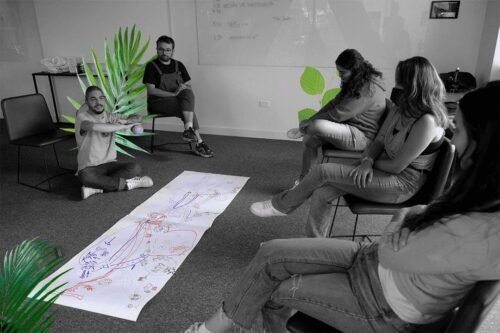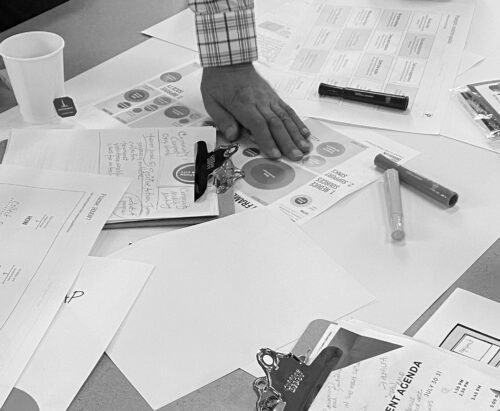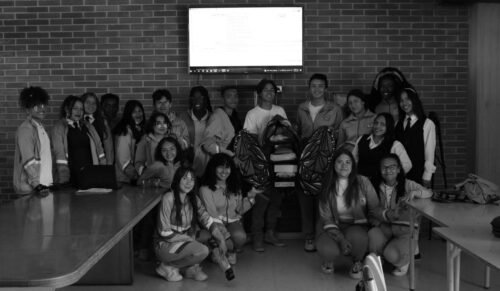
Working to care for and restore the planet may seem uphill, but currently it is more than imperative. Although it is a difficult time, it is hope that keeps us encouraged to continue on that path. At least, that’s the perspective of Felipe Fontecilla , who came to 2811 to lead the Climate Action area.
When starting his academic life from a social perspective, Felipe discovered how much this had in common with the needs of the planet and he opted to fight for it. Since then, he has been in Asia, Europe and Latin America, building capacities and sharing tools to fight climate change.
Felipe has a degree in Human Ecology, which with his experience shapes him for the direction of Climate Action initiatives in 2811, from their perspectives of social, economic and ecological regeneration. Here are some of his motivations and perspectives in this new position.
2811: Coming from social ecology, your field of study, what motivated you to take the path of climate action?
Felipe Fontecilla: When I entered the university I wanted to focus my studies on education for peace and conflict resolution. Education is a tool to bring together people from different cultures and nations. As I studied, I asked myself the question of how to use education to promote a peaceful and sustainable future.
So, I began to discover more about the impact of climate change in the world, and to realize that the conflicts of the future in the short, medium and long term are going to be directly linked to climate change.
I began to participate in actions and solutions for climate change from the perspective of social justice , and I became involved in environmental justice and climate justice. It was from there, from my concern to ensure a sustainable and peaceful future, that I entered into this process.
2811: When did you learn about the concept of climate change?
FF: The first time I heard about climate change was at school, and I looked at it with a lot of distance, because my issues were more social. But already at university I was in a workshop where I learned about the conflicts that are going to develop around water, the destruction of ecosystems, the impact of extreme weather events and more. I saw that there was a connection between what I was studying and climate change, and I decided that this was my topic.
2811: From this social-ecological complement, what do you understand by climate action?
FF: Climate action involves all activities and concrete actions to mitigate, adapt and cooperate around the climate crisis. On one hand you have everything mitigation of the causes, then you have adaptation and how we build ecosystems and communities resilient to impacts, and you also have international cooperation, intercommunity and local level work that can be done.
However, since it is an umbrella concept, attention to the climate crisis has grown exponentially in the last decade. It is a concept captured by different actors who are not necessarily promoting real solutions. It is very important to put on the table that climate action is a contested concept, it is political and it takes shape depending on who is using it, where that person comes from and what your intentions are.

There is a spectrum that includes actions that seek to work on mitigation, but maintaining the existing economic, social, political and infinite growth systems. Then there are the most transformational ones, which invite us to rethink the systems, because they understand that the growth of the markets must be finite because the earth’s resources are finite. Then there are even more extreme ideas such as those of the decrease .
2811: What would you say to college or university students who are encountering climate action?
FF: First I would say that despite the fact that the future looks complex, many of us are working for the pertinent solutions to the crisis. Here we support each other. There is quite a big effort to make us believe that our individual actions do not matter, but together in the collective we support each other and we are advancing in the transformations.
I would tell you that it is very difficult for us to be exempt from the impacts of the crisis, and it is going to be important to have tools to deal with this. It helps us from understanding how the food chain and food systems namely planting a garden, having some food and energy sovereignty. We need to build more resilient communities.
2811: Why is cooperation and co-creation so important in all this context?
FF: I think it is important to recognize that the causes of the climate crisis are complex and systemic.. There are multiple factors that contribute to the global warming and climate crisis, They are multidimensional crises. So no one is going to generate the transformations alone, it has to be a collective effort in which we are jointly promoting solutions.
As the climate crisis has a planetary impact, knowledge sharing is critical to building these solutions. It is important to understand from diversity and plurality: we are different, so we have different tools and needs, therefore solutions must be built collectively. In this plurality we can find ourselves.
2811: A mainstay of 2811 is regeneration. Why talk about regeneration over just sustainability?
Sustainability tells us about a future , regeneration invites us to acknowledge the past. There is something beautiful in this recognition, because it allows us to know the solutions that we have to implement knowing what was there before. That there was a built social fabric, healthy ecosystems, and that this has been degraded by human activities.
Regeneration recognizes this history, and for this reason it can build more pertinent solutions, not only thinking about sustaining life in the future, but also about what the history is and what is the state we want to return to. That is why there is value in speaking from regeneration and not only from sustainability.

Related Posts
Food resilience: an action against climate change
Resilience invites us to consider how we obtain food and how we use it to feed ourselves.
Read moreGreen practices to make your company more environmentally friendly
Sustainability and green practices are all the rage today. Why then not take advantage of this with your company?
Read more5 students tell us the importance of food resilience
As with It is a project aimed at students to enhance food resilience. Young people explain its importance to us.
Read more


